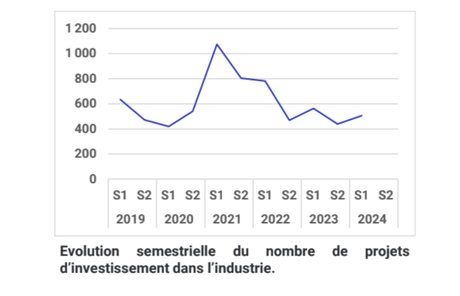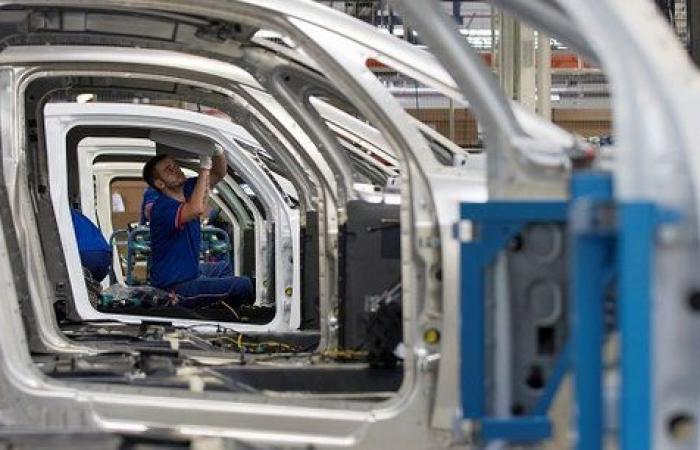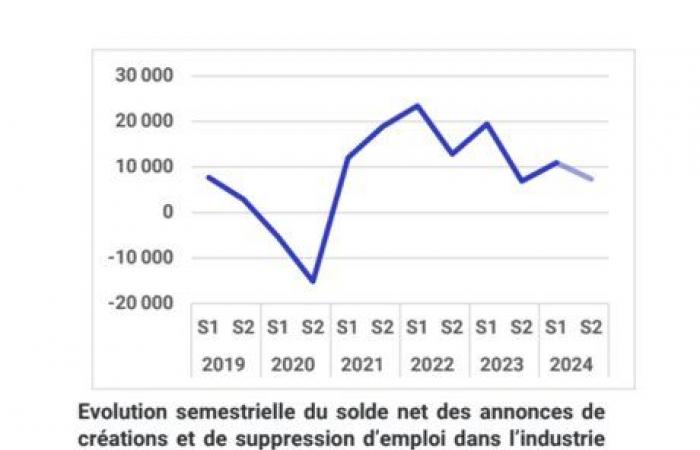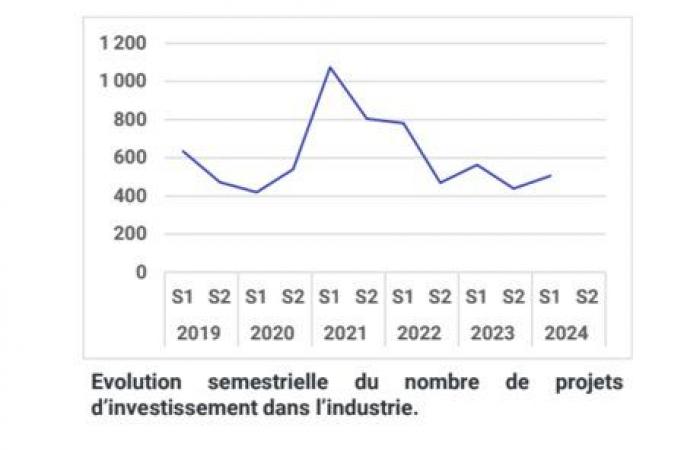The end of a dream, that of a France that becomes an industrial power again, or a simple cost of stopping a dynamic engaged for a handful of years? The reindustrialization of France is marking time, according to a brand new study by the Trendeo firm, specialized in the analysis of economic data.
Unveiled this Sunday evening, the study of around twenty pages clearly demonstrates a sharp slowdown in factory openings in the country in 2024, after a less significant dynamic already observed in 2023. According to it, the net balance between the ” announcements » of factory openings and closures is positive by 18 units in the first half of 2024. But this figure is decreasing “by 30% compared to the first half of 2023”According to Trendeo, the two curves have even come closer together in recent months: “Factory openings decreased by 4% and closures increased by 9%”.
Financing, land… Industrial start-ups are organizing to make their needs heard
Chart from the new study by Trendeo.
More worryingly, the dynamic has been negative since April. Between the month of Easter and August, the net balance of the Trendeo indicator is at -10 and therefore a trend towards the destruction of industrial sites throughout France rather than creation.
Several announcements have marked the French economy in recent weeks, such as the upcoming closure of the Steris Le Haillan plant in Bordeaux and the loss of around a hundred jobs. During the summer, the automotive equipment manufacturer Bosch also announced the closure of its Mondeville (Calvados) plant, to name just a few examples.
Industry: Difficulties persist despite increase in factory openings
In industry, a disparate situation depending on the sector
Unsurprisingly, this dynamic that is taking a bad direction is felt in the net creation of industrial jobs, a point on which the Trendeo firm also has an indicator. According to the authors, France has created exactly 9,597 jobs in the “industrial production” over the first eight months of 2024.
At first glance, this may seem like a good performance in a context of political uncertainty that has caused a certain wait-and-see attitude among business leaders. However, it is the lowest net balance between creations and destructions of industrial jobs in France since the Covid-19 health crisis (more than 15,000 job destructions that year). For comparison, 2021 saw the creation of more than 17,000 industrial jobs in France, then nearly 27,000 the following year and finally almost 21,000 in 2023.
Automobile: Dumarey Powerglide equipment manufacturer in danger, hundreds of jobs threatened
Chart from the new study by Trendeo.
By sector, several situations are worth highlighting. If the electrical equipment industry is the one that creates the most jobs in the first half of 2024 (nearly 4,000 as in the first six months of 2023), this is particularly thanks to battery production projects. The pharmaceutical industry also enjoys a positive balance of 700 jobs in 2024, after a complex previous year (-400). At the other end of the ranking, the automobile industry is a poor performer, particularly due to the poor health of its subcontractors and the difficult transition to electric (negative balance of 469 jobs). Furthermore, the aeronautics and space industry, after a prosperous year in 2023 (+3,889), is experiencing a sharp slowdown (+1,867) in its job creations, with the aerospace sector mired in cash flow problems.
Airbus: Faced with “danger”, the aircraft manufacturer launches a cost-cutting campaign and a hiring freeze
Investments that are swelling
While these dynamics observed in factory openings and industrial jobs created could suggest that investment is decreasing, it is quite the opposite. Investment has never been this high since 2009, according to Trendeo, which reports that the amounts injected into the economy are around 50 billion euros over the first eight months of 2024.
“These opposite developments are explained by a continuous increase in the average investment per project. This increase in the average investment is mainly an effect of reindustrialization. Industry, which is more capital-intensive, represents a growing share of the amounts invested: the trend is going from 25% of all investment in 2009, a year of crisis, to almost 50% in 2024,” the firm analyzes.
Bpifrance launches a fund for individuals from 500 euros

Chart from the new study by Trendeo.
A few days after the publication of the Draghi report on European competitiveness, this new study by the Trendeo firm demonstrates once again that investments to make France an industrial power again will have to be much greater.
” We are certainly in a phase of growth in industry in volume, but this is globally equivalent to the rest of our economy and above all much less. than that of our European peers. It is very good to have, like Europe and as the Draghi Report underlines, two “classic” pillars: a policy of supporting the decarbonization (and more generally of the ecological transition) and a policy of iinnovation of rupture (…) In addition, we need a third pillar, a pillar that we lack and that responds to our singularity: a policy of densification our productive fabric, to support all the projects of PMI and some ETI anchored in the territories »shared Friday evening, on the social network Linkedin, Olivier LLuansi, author most recently of the book “Reindustrializing, the challenge of a generation”, published by Les Déviations.
At the beginning of 2023, the expert carried out a study for La Fabrique de l’Industrie, covering “the hidden potential of the territories” in this quest for the reindustrialization of France. One of the main conclusions of the study is based on the fact that the vast majority of productive investments in the territories are under the radar of all public actors and are therefore not supported.








